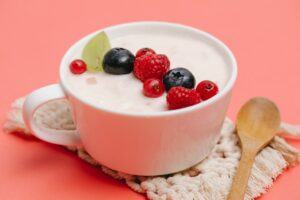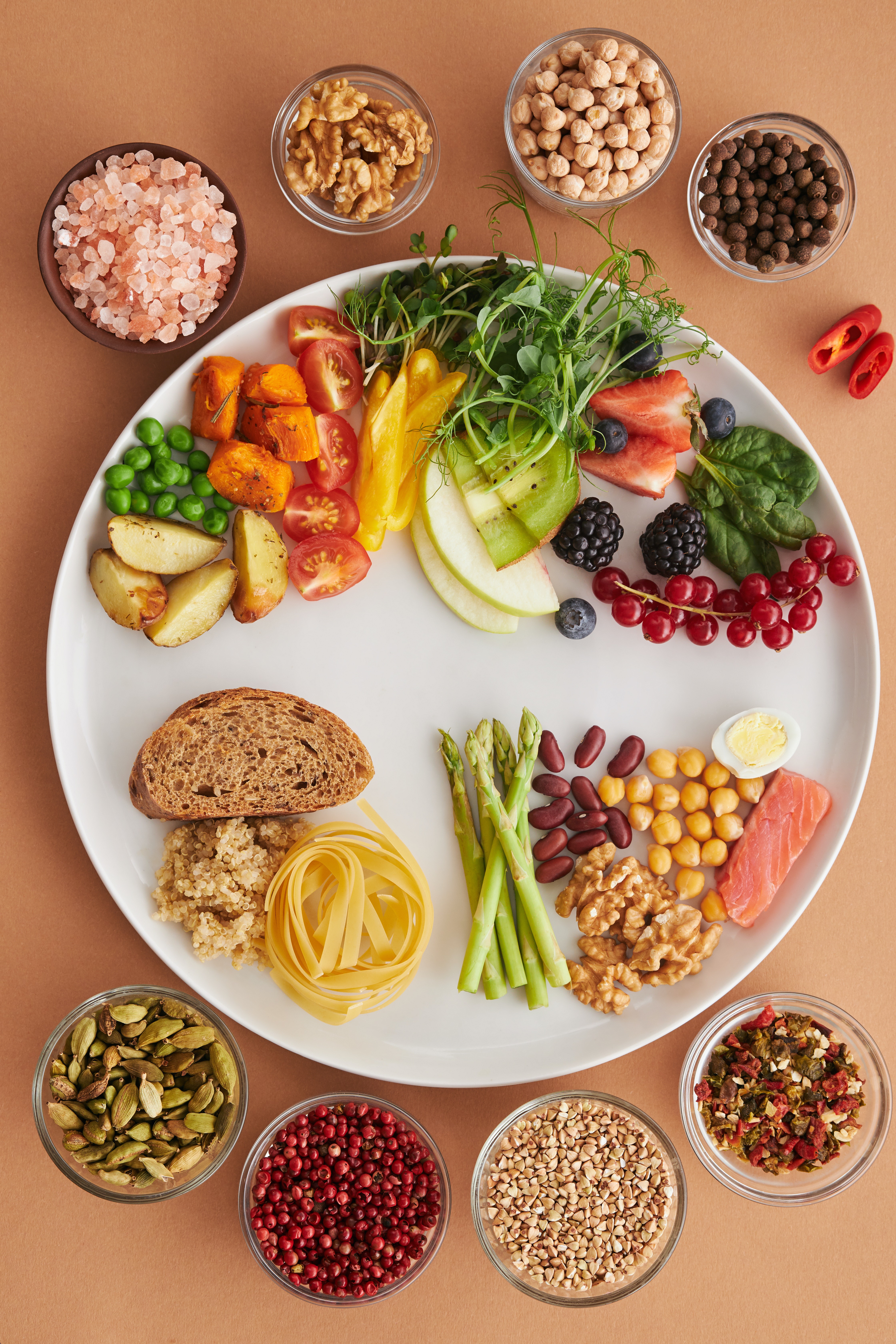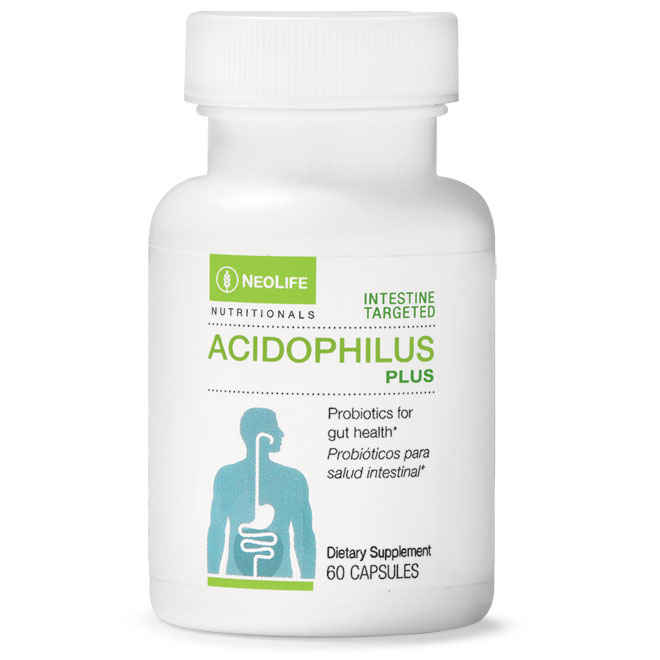There’s been a lot of talk about the gut microbiome in recent years. If you aren’t yet aware of its critical function and importance, here’s what you need to know.
Our diets feed more than just our body’s cells. We’re also feeding a variety of microorganisms that reside inside our digestive tracts, collectively known as the gut microbiome. Research shows strong associations between specific nutrients from our diets and the appearance of certain microorganisms in our gut.
 Prebiotics
Prebiotics
The compounds in our food, that foster the growth or activity of beneficial microorganisms in our gut (such as bacteria and fungi), are called prebiotics.
These microorganisms enter the intestines via the stomach. Many bacteria are killed in the stomach by stomach acid or in the small intestine by bile. To be effective at all, probiotics must survive the stomach to a sufficient extent. They then reach the small intestine and finally the large intestine.
The most common environment considered is the gastrointestinal tract, where prebiotics can alter the composition of organisms in the gut microbiome.
Dietary prebiotics are typically nondigestible fiber compounds that pass undigested through the upper part of the gastrointestinal tract and help the growth or activity of advantageous bacteria in the colon. This is key to understanding how our diet impacts our health.
 Probiotics
Probiotics
Probiotics are living bacteria that have a positive effect on health when consumed in sufficient quantities. Most often, probiotics are bacteria, but health effects have also been attributed to certain yeasts. Alleged positive effects include reducing intestinal complaints and allergic symptoms or increasing resistance.
Probiotics can be found in fermented foods, yogurt, kefir, or as a dietary supplement. There are many different types of probiotic bacteria. Most belong to the lactobacilli or bifidobacteria. In any case, they must be alive and present in a product in large enough quantities to have an effect at all.
Impact on our wellbeing
The microbial species we cultivate through what we eat produce many bioactive compounds; some can be linked with unhealthy markers like obesity and high triglyceride levels and can be toxic, while others can be linked with healthy behaviors like eating a variety of plants and yielding beneficial vitamins. Our gut microbiome can impact many aspects of our health. With the right diet and supplements, we can change its composition to help support health and weight loss goals.
 Wholefoods for a happy gut
Wholefoods for a happy gut
A diet low in whole foods but high in processed foods will support more harmful microbe species and less diversity. Eating a diet with a large variety of whole foods supports a diverse microbiome with species that produce beneficial compounds like B vitamins, vitamin K, and neurotransmitters like serotonin.
A gut needs both prebiotics and probiotics. It’s important to eat a wide variety of whole foods every day, including vegetables, fruits, whole grains, and legumes. You can add Prebiotic and probiotic supplements to support your gut health.
![]()
 Fibers
Fibers
![]() Dietary fibers are important for healthy digestion. They reduce the risk of cardiovascular disease, type 2 diabetes, and cancer. A diet with sufficient fiber can also contribute to maintaining a healthy weight. Adult women are recommended to eat at least 25 grams of fiber per day, and adult men at least 30 grams per day.
Dietary fibers are important for healthy digestion. They reduce the risk of cardiovascular disease, type 2 diabetes, and cancer. A diet with sufficient fiber can also contribute to maintaining a healthy weight. Adult women are recommended to eat at least 25 grams of fiber per day, and adult men at least 30 grams per day.
Vegetables, fruit, potatoes, whole-grain bread or breakfast cereals, legumes, and nuts contain a lot of dietary fiber. Because there are many different types of fiber, each with its good properties, it is important to eat fibers from different types of foods.
 Allicin
Allicin
One study showed the powerful impact on the microbiome of consuming vegetables that contain a compound called allicin found in garlic, onions, and leeks. Subjects drank raw garlic juice for a week and experienced improved microbiota diversity, an increase in the number of beneficial bacteria, and a reduction in microbe production of trimethylamine N-oxide (a marker positively correlated to cardiovascular disease).
Another study found garlic supplements (like Neolife Garlic Allium) increased microbial richness and diversity, in addition to yielding other cardiovascular benefits like reduced arterial stiffness and improved cholesterol levels. That’s just a sample of the evidence that diet has the power to shift our microbiome composition over time, and supplements can help move that process along.
Boost your gut health
Because the microbiome plays a role in appetite, an unhealthy composition of gut microbes can contribute to difficulties with maintaining a healthy weight. However, certain supplements, like probiotics , can be powerful allies. They have been shown to alter gut microbiome composition and secretions to influence our appetite and cravings. Certain strains, like the Lactobacillus family, have been particularly well studied for their influence in supporting weight loss.
 Acidophilus Plus Intestine-targeted probiotic with 5 billion live micro-organisms for gut health and digestive balance. Exclusive Gel-Gard technology for guaranteed delivery.*
Acidophilus Plus Intestine-targeted probiotic with 5 billion live micro-organisms for gut health and digestive balance. Exclusive Gel-Gard technology for guaranteed delivery.*
Learn more here




